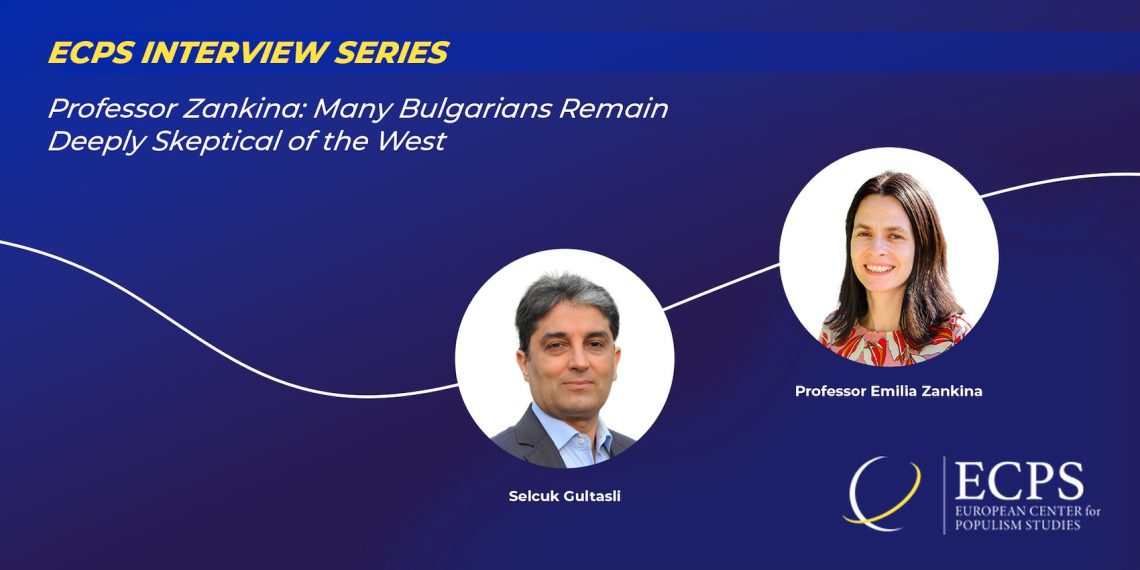In an interview with ECPS, Professor Emilia Zankina explains that, despite the financial and mobility benefits of EU membership, “many people remain deeply skeptical of the West” due to Bulgaria’s strong historic ties to Russia. The communist era deeply embedded Russian language, culture, and education in Bulgarian life, and “for many,” Professor Zankina notes, “Russia is still seen as a liberator.” She observes that while the war in Ukraine initially reduced pro-Russian sentiment in the country, as the conflict continued, some Bulgarians have returned to their original views.
Interview by Selcuk Gultasli
In a comprehensive interview with the European Center for Populism Studies (ECPS), Professor Emilia Zankina, a leading expert in political science and Vice Provost for Global Engagement at Temple University, delves into the intricate landscape of Bulgarian politics. Currently Dean of Temple University’s Rome campus, Dr. Zankina offers an in-depth analysis of Bulgaria’s shifting political dynamics, particularly highlighting the nation’s complex relationship with Russia, the rise of populism, and public sentiment toward the West.
In Bulgaria’s recent parliamentary election, the center-right GERB party secured first place, but will need a coalition partner to govern. GERB garnered 25.52% of the votes, with the reformist We Continue the Change (PP) party in second at 13.74%, and the ultra-nationalist Vazrazhdane (Revival) party in third with 12.92%.
Exploring Bulgaria’s historic affinity with Russia, Dr. Zankina explains that despite the financial and mobility benefits gained through European Union membership, “many people remain deeply skeptical of the West.” She attributes this sentiment to the powerful legacy of the communist era, during which Russian language, culture, and education were integral to Bulgarian life. “For many,” Zankina notes, “Russia is still seen as a liberator, and this view endures across generations, who often make little distinction between Russian people and the government.” She describes how, initially, the war in Ukraine prompted a decline in pro-Russian sentiment, but as the conflict has continued, some Bulgarians have reverted to their original views.
Addressing Bulgaria’s “mushrooming” populist landscape, Dr. Zankina sheds light on why the country has faced seven elections since 2021. The rapid turnover of parties, she explains, is fueled by populism‘s promise of quick solutions and charismatic leadership, which attracts voters eager for change but dissatisfied with democratic processes’ slow pace. “This populist formula,” she says, “favors emotional appeals and big promises without real solutions.” In Bulgaria, populism has contributed to a “never-ending cycle” of new parties, each aiming to capture a portion of an electorate constantly shifting its support.
Dr. Zankina also highlights the unique dynamic of female representation within Bulgaria’s populist radical right (PRR) parties, where women play a “strategic role” in appealing to female voters. However, the PRR remains largely male-dominated, reflecting broader perceptions of these parties as “Männerparteien.” As Bulgaria navigates its future in the EU amidst the influence of both Russian-aligned parties and anti-establishment movements, Dr. Zankina’s insights underscore the complexities of national identity, populism, and external influences in shaping Bulgarian democracy.


